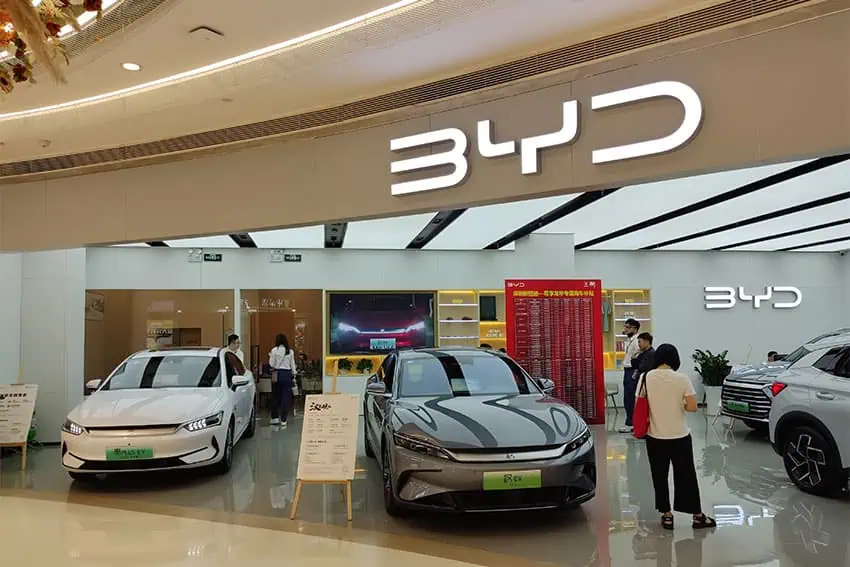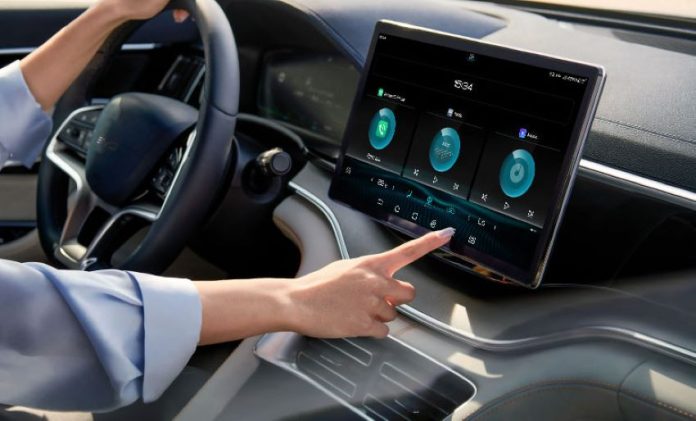The Mexican government has taken a range of concerns about the Biden administration’s proposal to ban certain Chinese software and hardware in connected cars on United States roads to the U.S. Department of Commerce.
The move came just over a month after U.S. President Joe Biden announced what the White House called “strong action to protect America from the national security risks associated with connected vehicle technologies from countries of concern.”

In a filing with the Department of Commerce on Monday, Mexico’s Economy Ministry (SE) said that the proposed ban on Chinese software and hardware in connected cars on American roads could have a “substantial impact on Mexico’s automotive industry.”
“Economically, it poses potential trade barriers, disruptions to supply chains, increased production costs, and a possible risk of reduced direct and indirect employment,” the SE said.
The Economy Ministry also said that the proposal could violate trade rules as set out in the USMCA and “lead to increased production costs due to the shift in suppliers of auto parts and components within the automotive industry’s pre-planned supply chain.”
The proposed ban on Chinese connected car technology in the U.S. wouldn’t just affect Chinese companies, but any automaker that uses Chinese technology in their vehicles.
Al Jazeera reported that the planned regulation would “force American and other major automakers in years ahead to remove key Chinese software and hardware from vehicles in the U.S.”
#GetConnected #EV data in @Politico Morning #Transportation…
Full Q2 2024 report → https://t.co/BS4UuFwhrI pic.twitter.com/IP4wElorC0
— Alliance for Automotive Innovation (@autosinnovate) October 3, 2024
Automakers from the U.S. and various other countries have plants in Mexico, and they could soon be joined by Chinese automakers if companies such as BYD follow through on their investment plans.
Reuters reported that the proposal “would effectively ban the import of Chinese brand vehicles [to the U.S.] — even if they were assembled in Mexico.”
The news agency said that automakers and tech groups separately asked the Biden administration on Monday for changes to the proposed ban on key Chinese connected car software and hardware, and for more time before the rule takes effect. One of those groups, the Alliance for Automotive Innovation, represents General Motors, Toyota, Volkswagen and Hyundai, all of which make cars in Mexico.
Polestar, a Swedish automaker that is majority-owned by Chinese company Geely, said that the proposed rule would even ban the sale of the vehicles it makes in South Carolina.
The Department of Commerce is aiming to finalize the proposal by January 20. Prohibitions on connected car software from China and other “countries of concern” are slated to take effect in the 2027 model year. The ban on hardware would take effect in the 2030 model year, or January 2029.
BYD, one of the world’s two largest electric vehicle manufacturers, is the most prominent Chinese automaker with plans to open a plant in Mexico. The company’s Americas CEO, Stella Li, has repeatedly said that the proposed Mexico plant will make electric vehicles solely for the Mexican market and not for export to the U.S. or anywhere else.

BYD’s general director for Mexico Jorge Vallejo has said that the company is aiming to settle on a location for its proposed plant by the end of the year.
The United States government is determined to protect the U.S. EV industry from comparatively cheap imports and has concerns about the capacity of Chinese connected cars to collect data and thus compromise national security.
“Connected vehicles provide many benefits — from promoting vehicle safety to assisting drivers with navigation — but they also pose new and growing threats,” the White House said last month.
“These technologies include computer systems that control vehicle movement and collect sensitive driver and passenger data as well as cameras and sensors that enable automated driving systems and record detailed information about American infrastructure. Now more than ever, vehicles are directly connected into our country’s digital networks. As the Department of Commerce has found, vehicles’ increasing connectivity creates opportunities to collect and exploit sensitive information,” it said.
Former U.S. president Donald Trump — who initiated a trade war with China in 2018 — is also determined to protect the United States auto industry, pledging to impose hefty tariffs on all vehicles made in Mexico if he wins next week’s presidential election and returns to the White House in January.
With reports from Reuters
